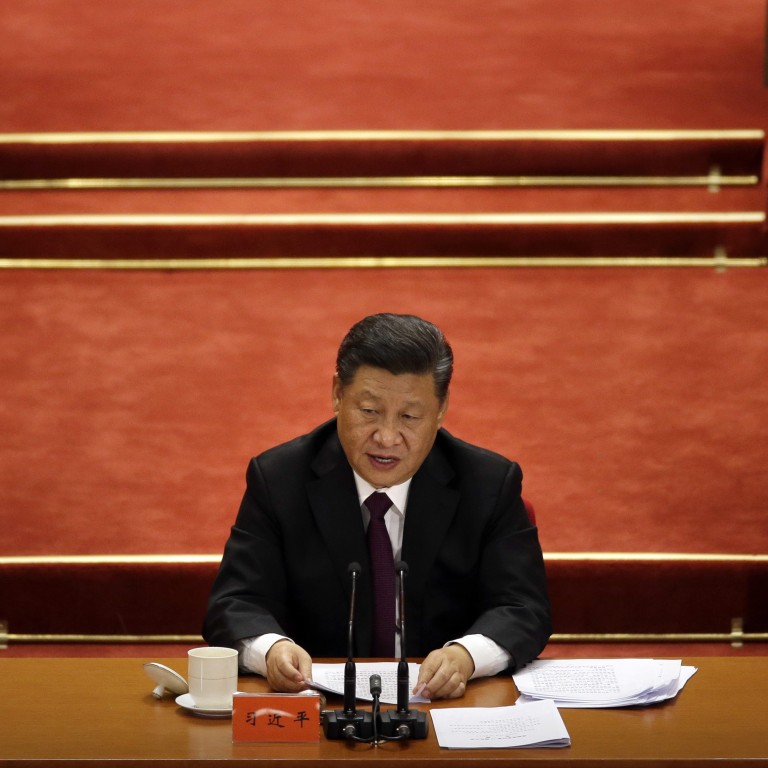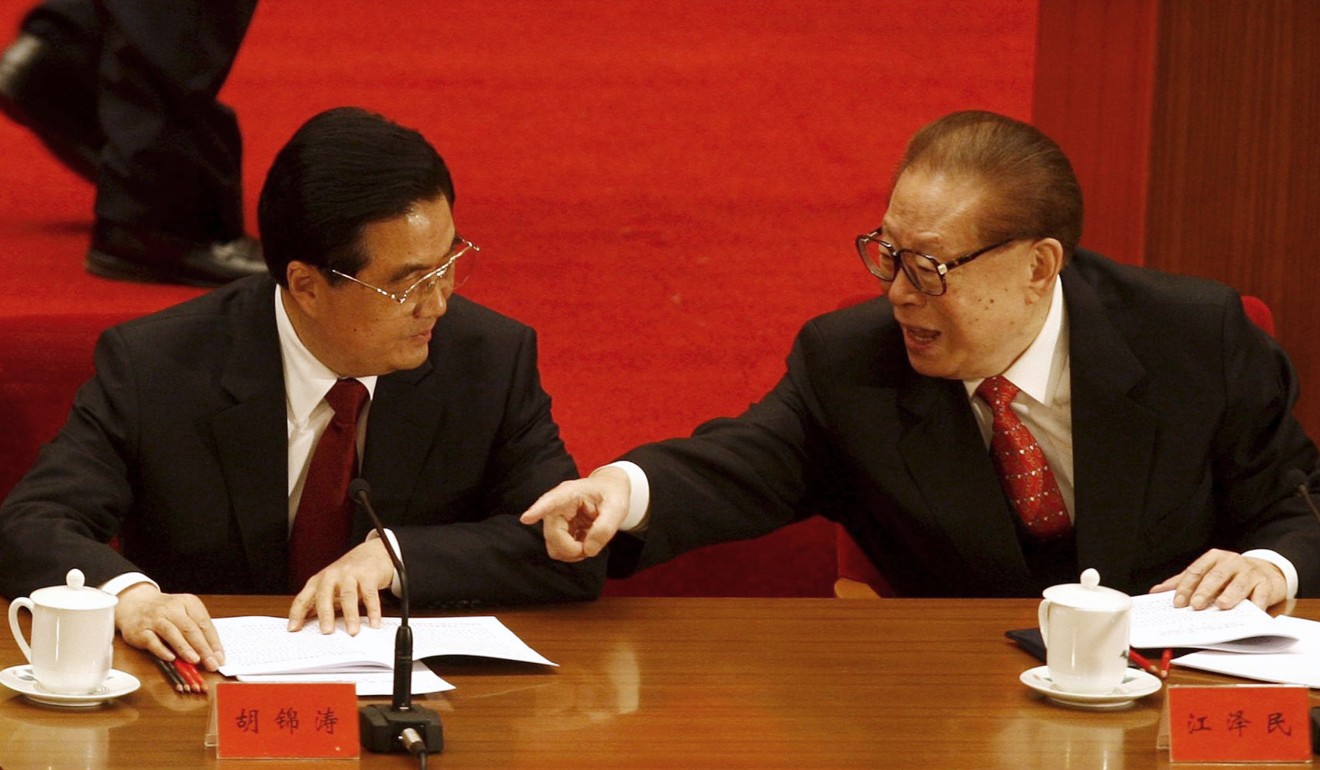
Xi Jinping pays tribute to his predecessors, but were any of them invited?
- Previous events marking anniversary of China’s reform and opening up have been attended by a line-up of retired state leaders in show of unity – not this year
President Xi Jinping paid tribute to each of his predecessors in a speech marking the 40th anniversary of China’s reform and opening up on Tuesday – though none of them were actually there.
Some 3,000 Chinese and foreign guests, most of them officials and embassy representatives, attended the event at the Great Hall of the People in Beijing.
Flanked by the 20 Beijing-based Politburo members, the president remained seated throughout his 1½-hour speech – unlike Hu Jintao when he addressed the 30th anniversary event in 2008, and Jiang Zemin a decade earlier, both of whom stood for their speeches.
But the biggest departure from past practice was the absence of retired members of the supreme Politburo Standing Committee.
When then president Hu hosted the ceremony 10 years ago, it was attended by a line-up of retired state leaders that is rarely seen, and is usually aimed at sending a message of unity from within the ruling Communist Party.

That 2008 event was attended by Hu’s predecessor, Jiang, and retired members of the 16th Politburo Standing Committee including former vice-president Zeng Qinghong, as well as Wu Guanzheng and Luo Gan. Other big names included former National People’s Congress chairman Li Peng and former premier Zhu Rongji, both from the 15th Politburo Standing Committee.
None of them were at the ceremony on Tuesday, and there was no explanation given as to why retired state leaders had not been invited.
Where to now? 40 years after the big economic experiment that changed China
The president also highlighted the continuity of party leadership, paying tribute to the achievements of his predecessors one by one.
On Mao Zedong, Xi said he not only founded the People’s Republic of China, but also laid the foundation for the political system. While he acknowledged that the decade of turmoil during the Cultural Revolution had brought the country to the “verge of economic collapse”, Xi said the party had still made “enormous achievements” despite the “serious repercussions” of the Mao era.
“During the process of exploration, although [the party] experienced serious repercussions, the party bore fruits in original theories and made enormous achievements, providing precious experience, theoretical preparation and the material foundation to advance socialism with Chinese characteristics in the new historical era,” he said.
The president went on to talk about Deng Xiaoping, saying he had led the focus on economic development and helped to answer questions on how to push forward China’s socialism, and set up a timeline and strategy for modernisation in the 21st century. Xi also highlighted Deng’s contribution in “correcting the mistakes of the leftists during and before the Cultural Revolution”.
On Jiang, Xi said his “theory of the three represents” had defended China’s socialism at a complicated time, saying he had laid out the country’s reform goals and framework and set up an allocation system for wealth, ushering in a new chapter for opening up.
Xi also spoke about Hu, saying his scientific development theory had brought new ways to build a prosperous society. The president also credited Hu with improving Chinese livelihoods, social welfare and sustainable development, as well as promoting a harmonious society.
Journey to prosperity: how a generation climbed China’s social ladder through 40 years of luck, talent and economic growth
A decade ago, Hu also praised Mao for founding the People’s Republic of China and Deng for his reforms – but he spent less time paying tribute to his predecessors than Xi.
Beijing-based historian Zhang Lifan said Xi’s tribute was about unity at a time when support from within the party is crucial.
“Externally there is the China-US trade war,” Zhang said. “Internally, there has been so much opposition and frustration inside the party during the six years of [Xi’s] rule.
“So Xi needs to highlight the power of the party and ask [all cadres] to go through this difficult time together … He is putting himself together with [the fate] of the party,” he said.
Zhang also said he believed the party elders had not been invited to the event.
“None of them showed up, so I think they were not invited at all,” he said.
Several high-profile business leaders from the private sector such as Alibaba’s Jack Ma, Tencent’s Pony Ma, Baidu’s Robin Li Yanhong and carmaker Geely’s Li Shufu, took up seats usually occupied by political elites. (The South China Morning Post is owned by Alibaba.)


